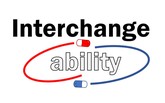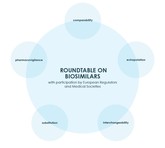Biosimilars
Different approaches to the interchangeability of biosimilars
The interchangeability of biosimilars can sometimes be an emotive subject. Despite reservations by prescribers, payers and patients, many countries have implemented policies allowing for the substitution of biologicals with biosimilars. However, there is still a lack of harmonization around the world when it comes to how different countries or regions approach the interchangeability of biosimilars [1].
Latest launches for adalimumab biosimilars in Canada and Japan
There has been a lot of news recently when it comes to adalimumab biosimilars. Sandoz, Fresenius Kabi, Fujifilm Kyowa Kirin Biologics/Mylan and Viatris have all announced launches of adalimumab biosimilars.
Biosimilar patent litigation trends in the US
According to authors from Law360 the trend in biosimilar patent litigation cases has been downward, with many cases being resolved and only five cases still pending as of 31 December 2020 [1].
Efficacy and safety of interferon beta-1a (ReciGen) in COVID-19
Since COVID-19, caused by SARS-CoV-2, emerged as a worldwide concern and was declared a pandemic, finding a safe and effective treatment for this disease has been a top priority. Different treatment candidates, including interferon [1], remdesevir [2], tocilizumab [3], and dexamethasone [4] have been investigated in multiple clinical trials.
Collaboration between regulatory authorities for biosimilars
A survey carried out by the World Health Organization (WHO) in 2019‒2020 highlighted the need for collaboration between regulatory authorities in order to expediate the approval of biosimilars [1].
Biosimilar approvals and launches in the US
An examination of biosimilar approvals by the US Food and Drug Administration (FDA) compared to launches was carried out by authors from Law360 [1].
FDA accepts application for bevacizumab biosimilar BAT1706
China-based Bio-Thera Pharmaceuticals (Bio-Thera) announced on 28 January 2021 that the US Food and Drug Administration (FDA) had accepted the Biologics License Application (BLA) for its proposed bevacizumab biosimilar, BAT1706.
Improving biosimilar use in clinical practice
Uncertainty about biosimilars and lack of motivation among healthcare providers and patients to use them may have been curbing biosimilar use. Guidance on how to implement biosimilars in clinical practice and how to incentivize stakeholders to use biosimilars may help to realize the benefits offered by biosimilars for healthcare systems and patients.
Canada approves infliximab biosimilar Remsima SC
Canada’s drug regulator, Health Canada, has approved the infliximab biosimilar Remsima SC for the treatment of autoimmune diseases.
Improving stakeholder understanding about biosimilars
The arrival of biosimilars provides benefits for healthcare systems and patients by lowering treatment costs and improving patient access to biologicals. Despite these benefits and demonstrated comparability with the reference biological, the use of biosimilars varies across regions and remains limited in some cases. This may be partially due to a lack of knowledge and understanding among healthcare professionals and patients about biosimilars, limiting their willingness to use them.













